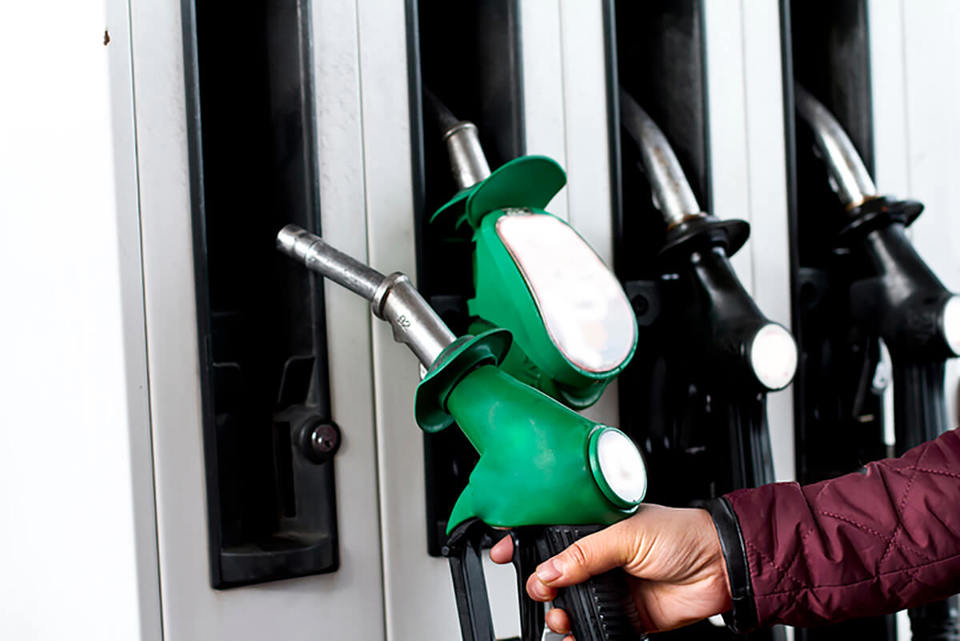Diesel drivers are being overcharged by nearly 5p per litre, leaving fleets out of pocket, according to the AA.
Analysis of wholesale price data from the European Union (EU) shows that, on at least three occasions this year, spikes in the value of petrol across northwest Europe have raised it to the same level as diesel.
For almost four weeks this spring, diesel was the same price if not cheaper than petrol.
The two have closed in price again recently, but fleets continue to pay a premium for diesel on UK forecourts, despite fuel duty being the same for both.
UK wholesale prices shown to the AA reveal that, between March 21 and April 18 this year, diesel wholesale prices ranged from the same price as petrol to up to 2p a litre cheaper.
However, throughout April, diesel remained at least 5.4p a litre more expensive than petrol at the pump – forcing diesel drivers to spend at least £2.5 million a day extra on fuel.
Since then, despite diesel again becoming cheaper than petrol in the wholesale market, it remains nearly 5p a litre dearer than petrol.
Fuel price data from www.fleetnews.co.uk shows that the average UK price of diesel was 143.11p per litre last week, while petrol was 4.8p per litre cheaper at 138.33p.
The claims come a month after the Office of Fair Trading (OFT) launched a preliminary investigation into the petrol and diesel markets (Fleet News, September 13).
The Government has also announced that accusations of oil traders and speculators allegedly rigging markets to drive up the price of fuel for fleets is also to be investigated.
Energy minister John Hayes said he would include alleged oil market rigging in the planned investigation into the
inter-bank lending scandal (LIBOR), which affected interest rates for millions of bank customers.
He will also ask the Financial Services Authority (FSA) to look into the matter and has instructed his own civil servants to investigate the issue.
AA president Edmund King said: “If the EU can publish a weekly track of petrol and diesel wholesale prices in euros per tonne, why can’t the UK Government publish an equivalent in pounds per tonne or pence per litre on one of its websites? It doesn’t need an investigation, or permission from fuel retailers or suppliers, just a form that can be understood by the public and businesses to ensure a fair price for all parties.”
The price gap has again raised the debate over petrol versus diesel, with most fleets favouring diesel-powered cars.
Around 80% of the cars operated by UK fleets run on diesel, but Paul Tate, commodity manager for fleet at Siemens, has switched 300 vehicles to petrol.
He told attendees at a recent Fleet News roundtable that “you’ve got to weigh up the pros and cons, because unleaded doesn’t meet everybody’s demands”.
He continued: “The reduction in the cost of buying an unleaded vehicle and also the savings we’re achieving through the mileage being covered has worked out very well for us.”
Rick Young, fleet manager at Wakefield and District Housing, said car drivers at the company were also considering making the switch.
“It wouldn’t have been the case a few years ago, but now they’re contemplating petrol,” he added.
Tate said: “The manufacturers are saying now that they’ve got the CO2 emissions as low as they can do with diesel; their focus is turning to petrol.”
For example, Ford’s EcoBoost petrol engine has been making waves in the fleet industry.
Kevin Griffin, Ford fleet director, said: “We are seeing growing interest around the 1.0-litre EcoBoost petrol engine, with 40% of Ford Focus 1.0-litre EcoBoost sales going to fleet buyers, despite the fleet market being diesel-led.”
Click Here to view the latest petrol prices by city in the UK




















Login to comment
Comments
No comments have been made yet.